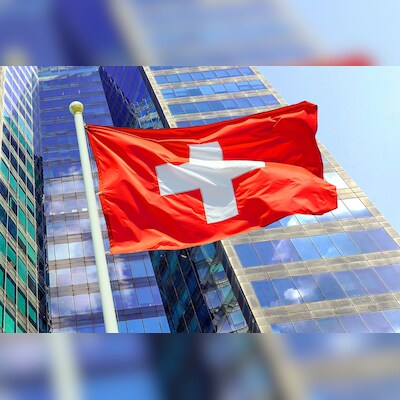[ad_1]
As a first step towards ratifying the India-EFTA (European Free Trade Association) trade deal that includes Switzerland, Iceland, Norway, and Liechtenstein, the Swiss government has submitted the ‘dispatch’ to its Parliament.
“On 4 September, the Federal Council adopted a dispatch on the free trade agreement between the EFTA states and India… In its dispatch, the Federal Council commends and sets out the content of the agreement and places it in the overall context of Switzerland’s relations with India. Parliament is expected to debate the dispatch in the upcoming winter or spring sessions,” a press statement from the Swiss government said.
However, a Swiss official said that before Parliament’s approval, the trade deal will be open for public consultation involving cantons, civil society, and business communities. An association of citizens or a political party can ask for a referendum during the public consultation if they can collect 50,000 signatures.
In 2018, after EFTA and Indonesia signed an FTA, a Swiss non-government organisation Public Eye highlighted deforestation in Indonesia for palm tree cultivation as well as the death of orangutans. These concerns triggered a nationwide referendum in Switzerland, which the government managed to win by 51 per cent votes. However, the referendum delayed the implementation of the FTA between both sides until late 2021.
After 16 years of negotiations, Switzerland and the other EFTA states succeeded in becoming the first European partners to conclude an FTA with India in March this year. “When the agreement comes into force, 94.7 per cent of Switzerland’s current exports to India will enjoy tariff relief, in some cases with transitional periods. This will strengthen the competitiveness of Swiss exports in India,” the Swiss release said.
According to the trade deal, the EFTA bloc “shall aim to increase” foreign direct investment (FDI) from investors of the EFTA states in India by $50 billion within 10 years of this agreement taking effect and an additional $50 billion in the next five years, failing which India can partially withdraw tariff concessions.
“EFTA is also the first partner with which India has agreed a comprehensive and legally binding chapter on trade and sustainable development. This chapter includes, among other things, a commitment not to deviate from applicable environmental and labour standards. It also establishes a specific sub-committee on trade and sustainable development,” the press statement said.
India has promised to reduce tariffs to zero on 80-85 per cent of goods from EFTA countries while receiving duty-free market access for almost 99 per cent of goods, including rice. Both sides have excluded most of the agricultural and dairy products from duty concessions to protect their farmers.
India has also refused to reduce effective tariffs on gold, jewellery, dairy, cheese, and automobiles. About 82 per cent of India’s imports from EFTA countries, especially from Switzerland, is gold. India has only agreed to reduce the bound rate for gold to 39 per cent from 40 per cent, while the applied rate is already at 6 per cent at present.
First Published: Sep 05 2024 | 7:39 PM IS
[ad_2]
Source link

